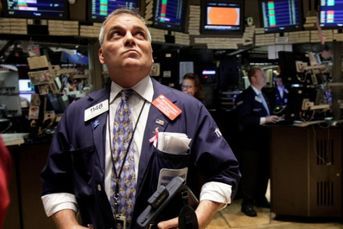Merrill funds go undercover to boost sales outside firm
Merrill Lynch? Nobody here by that name. As odd as it may seem, that refrain may soon become…
Merrill Lynch? Nobody here by that name.
As odd as it may seem, that refrain may soon become a familiar one. Merrill Lynch & Co. Inc. will start marketing mutual funds outside its sales force early next year, but none will bear the name of the biggest brand in the game.
Instead, Merrill plans to hawk funds of two subsidiaries, Hotchkis & Wiley and Mercury Asset Management. The funds are performing better than the Merrill family of mutual funds, which competing brokers would be reluctant to sell.
Merrill is also considering cloning and rebranding some of its best performing funds so brokers can sell them under the Mercury or Hotchkis & Wiley name without even mentioning Merrill in their brochures.
It’s a sign of the times, according to a Mercury fund executive.
“A vast majority of the brokers we talked to expressed a preference for Mercury,” acknowledges Christopher Blunt, president of Mercury Funds Distributors Inc., which will market the portfolios to the world outside of Merrill Lynch.
With clients demanding more objectivity, the days of forcing brokers to sell house funds are over, Mr. Blunt says, adding that all brokerages are looking to outsiders to sell their products.
“This is the way the industry is moving — you can’t rely on one distribution channel for growth,” Mr. Blunt says.
Merrill’s three mutual fund groups combine for $71.2 billion under management.
To be sure, Mercury and Hotchkis & Wiley are far more than fledglings. Mercury is Europe’s second-largest provider of investment trusts (England’s name for mutual funds) and manages $234 billion. Los Angeles-based Hotchkis has 12 funds — representing $2.1 billion — that have long been available to advisers through the supermarkets.
Mercury’s new U.S. fund family — with $1.9 billion — is made up of a global balanced fund, a pan-European growth fund, a U.S. large-cap growth fund, an international fund and a gold and mining fund.
Merrill is the second of the five top brokerages to try selling funds outside its own sales force, but analysts say it’s likely the others — Paine Webber Group Inc., Salomon Smith Barney Inc. and Morgan Stanley Dean Witter & Co. — will soon follow.
Prudential Investments, which provides funds to affiliated broker-dealer Prudential Securities, began marketing its portfolios to banks, brokerages and independent advisers more than 18 months ago but has shown limited sales success.
In that case, brand hasn’t been much help either. It is tied to parent Prudential Insurance Co. of America’s high profile scandals involving misleading annuity sales, and some advisers are prejudiced against the company’s mutual funds.
“The consumer wants choice, and there’s only so many funds the brokerages can sell through their brokers,” says mutual fund consultant Darlene DeRemer. “It may be tough at the beginning, but soon everybody will be trying to sell products through other channels.”
starting with three
Mr. Blunt says Merrill will be taking a more selective approach than Prudential, which has more than 400 selling agreements with brokerages. It’s going to work with only three major organizations for the first year.
Merrill is talking with six companies, regional broker-dealers and large banks, and plans to finalize agreements with three by January.
It will also be trying hard to crack the registered investment adviser market, which buys funds through the supermarkets — including the 5,600 advisers that trade through Schwab Institutional.
Mr. Blunt predicts advisers will be the first to buy the funds: The external effort hopes to gross $2 billion in 2000, $1 billion from advisers.
To do this, Merrill in recent months has hired Frank McAleer, formerly of Fidelity Investments, and Robert Dochterman, formerly of Salomon Brothers Asset Management. They’ll head up the eastern and western divisions, respectively, for third-party distribution. Merrill hired Mr. Blunt this year from Goldman Sachs Asset Management.
Mr. Blunt says the group is in the process of recruiting 20 to 30 wholesalers; they plan to start marketing by the end of next month.
Merrill hopes to get in by touting more than performance. Like other asset managers, Merrill will push to brokers its “value-added” service, which will include workshops and broader educational seminars.
“Nobody wants additional products,” says Mr. Blunt. “They want services that add some value.”
But instead of “pie in the sky” education, Mr. Blunt says Merrill’s service will tie back to its products to help drive sales. For example, the company will market a college savings program, including a product that includes both Merrill and Mercury offerings.
“Any good presentation has to be two-thirds value-added, one-third commercial,” he says.
This winter, Merrill also plans to launch an advertising campaign in financial newspapers and journals.
In the end, Mr. Blunt contends, the funds must be top performers, another reason why Merrill is marketing Mercury funds over its own.
“I don’t think advisers would dismiss the products outright. Performance would be the most important thing,” says Armond Dinverno, an independent adviser in Oak Brook, Ill., who says he has used the Hotchkis & Wiley funds since before the company was acquired by Merrill in 1996.
Merrill has been hiring portfolio managers to improve its own funds’ performance, but its funds still hover near the mean for their investment categories. So far this year, investors have yanked out more than $9 billion.
While Mercury funds do not have three-year track records in the U.S., and only one has a one-year track record, the perception is that they are better funds, says Ms. DeRemer. “The Mercury brand has a positive halo.”
Mercury will also go over better with regional brokers, she says. “An Edward Jones broker or an A.G. Edwards broker is still not going to sell a product with the Merrill Lynch name. The theory is that advisers will be more open to selling products with the Mercury name.”
Mr. Blunt says consolidation in the asset management industry will continue to blur the line between proprietary and non-proprietary funds anyway. “It’s almost impossible to define a firm solely as a competitor at this point,” he says. “And in the long run, that’s good for our funds.”
Learn more about reprints and licensing for this article.






